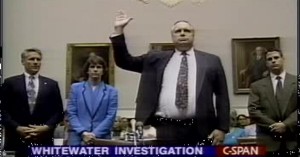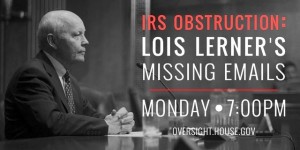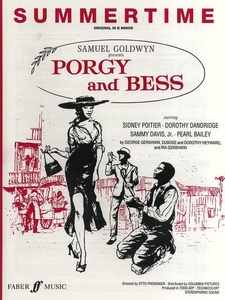Lessons From An Ex-Congressional Lawyer
Reading Time: 10 minutes.
Almost two decades ago, I learned several lessons as a Congressional lawyer, some more useful than others. Here is a 59-second summary of the better lessons.
Let’s go over a few more lessons that might be useful, should you or your client be summoned to appear before a House or Senate Committee.
The Lessons of Congressional Peculiarities
A document request or interview demand from Congressional investigatory staff could be a one-time, narrowly-focused inquiry or part of a complex investigatory broadside – involving simultaneous civil, criminal and congressional investigations into a company (or its employees) or even an entire industry. Examples in recent times include antitrust, food-and-drug, environmental, financial and corporate-governance investigations, as well as executive-branch oversight hearings such as Benghazi. Counsel should be aware of their evidentiary impact. In particular, he or she must move aggressively to limit the adverse impact of discovery produced in one forum on other proceedings. Given the scope of Congressional investigatory power, however, this task can be difficult.[1]
Where the only two competing interests are simultaneous civil and criminal proceedings, of course, it is not uncommon for defendants to seek a stay of the civil proceedings – often with the express or implied agreement of the government – until resolution of the criminal action.
Where the third competing investigatory interest is Congress, however, the picture becomes less clear. Although not without limits, legitimate Congressional investigatory authority reaches any matter on which Congress can legislate. For separation-of-powers reasons, courts are reluctant to address claims of Congressional investigatory overreaching, at least absent a clear due process problem. Thus, counsel will not be able to enjoin a Congressional subpoena, for example, or impose upon the committee a protective order for his or her documents.[2] Counsel’s greater chance of success lies in persuading committee counsel or staff that the scope of document requests or subpoenas can be narrowed such that the client’s interest is protected while still allowing the committee to carry out its function. Counsel should also seek alternative discovery mechanisms, such as allowing committee staff to review documents first, without actually taking possession of them.
Congress and Privileges
Although the Congress respects constitutional privileges (e.g., the Fifth Amendment privilege against self-incrimination), it does not officially recognize common-law protections such as the attorney-client privilege or the work-product doctrine. Rather, many committees will often take the position that recognition of such privileges is discretionary with the committee. As a practical matter, however, committee counsel and staff will often accept a well-grounded privilege claim. See generally Note, The Attorney-Client Privilege in Congressional Investigations, 88 Col. L. Rev. 145 (1988). Companies that are the target of major parallel investigations will often waive common-law privilege, either to show good faith and cooperation, or as part of a settlement with the government.

Unlike a criminal defendant, a witness before a Congressional committee cannot refuse to testify altogether, but must rather invoke the privilege in response to specific questions.
Alien Environment
For most civil or criminal litigators, a Congressional investigation is an alien environment. Although there are House rules, House committee rules, Senate rules and Senate committee rules, there are no reassuring guideposts, no analogs to the Federal Rules of Evidence or of Criminal or Civil Procedure. From a litigator’s perspective, rule number one is that there are few rules. The issue is one of control: unlike the civil litigation context, the congressional forum is one in which you are likely to be buffeted by forces that are largely beyond your control.

The fact that there appear to be no rules in a congressional investigation underscores perhaps the primary fact that counsel should bear in mind: the committee’s investigation takes place in a political environment, not a litigation environment. Although the investigatory process appears legalistic, it always unfolds in a political environment in which the actors have political goals that may or may not have anything to do with your client.
The political environment will demand several things of counsel, some of them inconsistent.
The Personal and the Political
Congressional investigations are not monolithic. They are often highly personalized between Members; between the majority and minority parties; between staffs; and between committees with potentially overlapping jurisdictions. Counsel should therefore remember that he or she is dealing with individual people rather than the institution of “Congress.”
Counsel may be proud of his or her “Rambo” litigation style, a style that unfortunately is often successful in a world of uniformly applied rules, broadly-construed discovery standards and tolerant judges. In the Congressional forum, however, committee counsel and staff usually possess near-plenary authority that they exercise with considerable discretion. Even when they do not make the rules, they apply them, and they will be rarely overruled by their Chairmen solely on the complaint of a private party.

Thus, counsel should be firm, and be aggressive where necessary, but be polite to committee counsel and staff, both majority and minority. Brendan Sullivan’s virulent, scorched-earth defense of Oliver North during the televised Iran/Contra hearings is the exception that proves the rule: in addition to the fact that Colonel North as a client offered his lawyers advantages and disadvantages peculiar only to Colonel North, Sullivan made a considered tactical decision that high-profile aggression was the appropriate tack in that particular public theater. You may reach the same conclusion, but do not do so reflexively.
Learn the Context of the Investigation
As soon as you or your client is contacted, attempt to gain as much information as possible about the investigation in general and your client in particular. The first and most obvious source should be your client and your client’s documents. In addition, unlike grand jury investigations, Congressional investigations do not remain secret for extended periods. In additional to national media, Washington specialists such as National Journal, Roll Call and The Hill can provide useful background on personal and political dynamics.
Be Proactive at the Outset
Be proactive with committee counsel and staff. Although you may determine later for strategic reasons that it is wiser to lay low (or be recalcitrant), a sound initial approach is to act promptly and to attempt to understand the individuals and issues involved. Ask lots of questions. What is the subject of the investigation? How long has it been going on? How long might it last? Are any other committees or subcommittees looking at the same issue? Is the Executive Branch (the Department of Justice or the regulatory agencies) looking at the same issue? Is the committee headed towards hearings? Has a date been set? Is the investigation a bipartisan inquiry? Minority only? Majority and minority, but working separately?

Such information is valuable in determining if you are facing a full-blown, formal committee investigation or a preliminary (and perhaps unsanctioned) probe by a curious, bored or ideologically-driven staffer. If the latter, you have an opportunity to slow down or stop the inquiry before it gathers steam. You may be able to accomplish this goal by direct persuasion, simply convincing the staffer that there is “no there there.” The political opposition on the committee may have an interest in stopping the investigation, or bending it to their own ends, and it will usually be in your client’s interest to consult with staff or counsel for the other party. Thus, make every effort to find out the names of the committee lawyers or staffers in charge of the investigation (both majority and minority). For the same reason, if the executive branch appears to be involved, identify the relevant lawyers from the Department of Justice or the regulatory agencies.
Why My Client?
You must then attempt to determine your client’s role in the investigation — or, more precisely, the committee’s perception of your client’s role. Why is your client involved? How did his or her name come up? If the request is for an interview or deposition, ascertain the subject areas to the extent staff is willing to describe them. What are the ground rules, if any? Is there a House or Senate resolution concerning the investigation? You should request a copy of such a resolution, if any, as well as a copy of the committee’s rules. A committee cannot exercise authority it does not have. Although committee authority is often broad, resolutions and rules define authority and offer counsel opportunities to exploit. A careful examination of these materials will yield a better understanding of the procedural and substantive protections available to your client, and thus will help you make strategic decisions (for example, whether you should participate voluntarily or only by subpoena; whether the staff deposition to which your client is being asked to submit is formally authorized; whether or not the committee intends to grant witnesses immunity).[3]
Hearings

We are in the summer months. We have written before about summer hearings:
As a former oversight-and-investigations lawyer for a House committee, I can testify: summer is the high season for O&I hearings. Nothing is going on legislatively, O&I hearings don’t require lobbyists or constituents, it is hot as hell but most House and Senate hearing rooms have good air-conditioning these days and, if you get some hearings under your belt in June and July, you’ll have plenty as a Member to talk about in your district or state.
Because most people are familiar with Congressional investigations only through television, they assume that if they are caught up in an investigation they will be summoned to testify before a committee like John Dean or Oliver North, with cameras clicking amid vigorous partisan drama. Although your client may indeed be called to testify in a public hearing — and you should prepare as though your client will be called — it is more likely that constraints of time, the demands of the media, and political pressure and compromise having little to do with your client will result in your client never being called. If your client testifies, remember that in many instances the committee members’ “questions” are not actually designed to elicit information from the witness. Rather, questioning is often more like speech-making designed to maximize camera time on the questioner or to score political points against the opposition.
This practice is particularly prevalent in the House, where Members must usually follow the “five-minute” rule, which limits an individual Member’s questioning to that period of time. Your client should expect frequent interruptions; indeed, it is a somewhat rare occasion under the five-minute rule when a witness is actually able to complete an answer. There is no judge present to whom the witness can appeal, nor should you expect the chairman to step in. In the face of such grandstanding, a witness’s only remedies are his or her opening statement, and potential softball questions from friendly Members.
Whether or not your client’s interests are best served by testifying, you should consider what steps you need to take (1) if he is called and (2) if he is not called. For example, many committees require several hundred copies of a witness’s prepared or opening statement, and they must be delivered usually 24 hours in advance of the witness’s appearance. What do you want to put into the opening statement? What are other witnesses saying in their opening statements? If your client is not called, is the opening statement something you can provide to the press as a release? Do you have a media package ready, whether or not your client testifies? Have you confirmed with staff where you can sit during the hearing?[4] These are all questions you should consider carefully well in advance of the hearing day.
Clean Up and Post-Mortem
Whether or not your client is involved in high drama, do not forget the details at the end. Your client should review and correct testimony where permissible. If you have reached any sort of confidentiality agreements with counsel and staff (e.g., redacting personal information out of documents or deposition transcripts prior to their publication), you should confirm your understandings in writing. You must also look ahead. Will there be additional investigations, perhaps by other committees or in the other legislative chamber? Has this investigation had an effect on any civil or criminal proceedings against your client? Have you been made aware of new sources of documentary or testimonial discovery that can help or hurt your client? Careful planning and professional flexibility at the end of the congressional investigatory process are just as important as they are at the beginning, and will serve your client well.
[1]Congressional investigatory power is “as penetrating and far-reaching as the potential to enact and appropriate under the Constitution.” Barenblatt v. United States, 360 U.S. 109, 11 (1959). Congress can enforce its investigatory will through, among other means, the contempt power. The congressional contempt provision, 2 U.S.C. Section § 192, provides that
[e]very person who having been summoned as a witness by the authority of either House of Congress . . . to produce papers upon any matter under inquiry before either House . . . willfully makes default . . . shall be deemed guilty of a misdemeanor, punishable by a fine of not more than $1,000 and imprisonment in a common jail for not less than one month nor more than twelve months.
Under this provision, “willfulness” refers to intentional conduct, United States v. Bryan, 339 U.S. 323 (1950), not bad faith or moral turpitude. Braden v. United States, 365 U.S. 431, 437 (1961). Neither mistake of law nor advice of counsel excuses a violation of the statute. See Sinclair v. United States, 279 U.S. 263, 299 (1929) (advice of counsel); Watkins v. United States, 354 U.S. 178, 208 (1957) (mistake of law).
For an exhaustive bibliography of Congressional investigations, look here.
[2]A witness who believes that a subpoena is defective (for example, that it was issued beyond the committee’s authority, or that it violates the witness’s constitutional rights) has limited avenues of recourse. Essentially, the witness must refuse to comply; be cited for contempt; and raise the objection as a defense in the contempt proceeding. See Eastland v. United States Servicemen’s Fund, 421 U.S. 491, 503-07 (1975) (the Speech or Debate Clause raises “an absolute bar to judicial interference” with a Congressional subpoena).
[3]In the Whitewater investigation during the 104th Congress, for example, the Senate Special Committee to Investigate Whitewater and Related Matters operated pursuant to a relatively comprehensive Senate resolution that authorized funding for the investigation, including staff; set out the subject matter of the inquiry; and described discovery authorities and procedures. The House Banking Committee operated pursuant to no special resolution but rather relied on its delegated oversight authority.
[4]Many committees do not allow lawyers to sit at the witness table or even to speak during the hearing, except to counsel the witness as to his or her constitutional rights. See, e.g., 108th Congress, Rules of the House of Representatives (January 7, 2002), Rule XI 2(k)(3) (“Witnesses at hearings may be accompanied by their own counsel for the purpose of advising them concerning their constitutional rights.”) This protocol places a high premium on thorough witness preparation prior to the hearing.